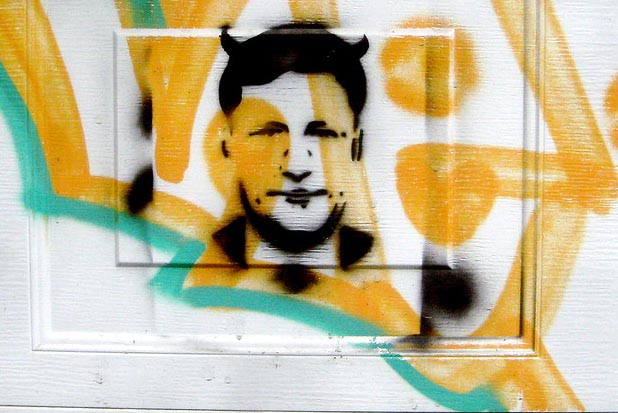Everybody has one.
You know — the friend who’s craving a bit of recognition from that guy who seems to keep turning up like a bad penny when her defences are at their lowest. A little something that proves to her she’s not being taken for granted and that her needs are being acknowledged and met.
No matter that the proof she points to is largely symbolic — tokenistic, even — or that her friends (you may even be one of them) point out that that the shiny baubles he periodically gives to keep her hopeful pale in comparison to what he’s handed out to his other pals. They tell her she needs to understand she deserves far more — that she’s selling herself short. That if he cared — really cared — she would be having these conversations with him, and he would listen and answer her questions with sincerity and compassion rather than just dismissing her.
And then there’s that one friend who, after weeks of comforting and encouraging and sympathizing, finally says what’s been clear to everyone all along.
He’s just not that into you.
And in the deafening silence that follows, the friend delivers unassailable evidence.
If he really cared he would do more than pay you occasional compliments (like, four times in the past seven years), or give you those secret signals when he’s on TV because he’s “thinking about you” while sitting in a brand new F35 jet or against a backdrop of teenage kick-boxers and other supporters holding mass-produced lopsided handmade signs.
If he really cared, you would be able to meet and hang out with other people – even people with different politics — without worrying about his reaction, or whether he’ll take it personally and have his friends humiliate you in public — because that’s not how you treat someone you respect. And when you disagree with him, he would listen and answer your questions — not ignore them or be all passive-aggressive, pretending you’re “overreacting” or making something out of nothing, even when you caught him red-handed. Not cool.
Rather than suggesting you split the lunch tab — even though you had a salad and he had an Alberta prime rib — and letting you also pick up the tax and tip because he doesn’t want to break a $20, he would recognize everything you contribute to his happiness and security and offer real support. He certainly wouldn’t claim that his lack of meaningful assistance is about him not wanting to “control” you because he respects your ability to “do things for yourself” — like that time you were on a deadline and had to take off work to look after your kid and he was too busy to pick up your groceries.
He would show you that your needs are worth more than just a fraction of the time and interest he gives his other friends. He wouldn’t pretend that the promise of a little gift somewhere down the road — like that birthday present you had to buy yourself that he swore he’d pay you back for — is anything like a real commitment, especially when he routinely bails on you to go off-roading or jam with his garage band playing Beatles tunes.
At this point the friend might concede that it’s difficult to be confronted with evidence that we’re being taken for granted, especially when we think that this time it’ll be different. But part of real empowerment is recognizing we don’t need to settle for tokens — we can expect more. We have to expect more. We’ve worked too hard and are worth too much to get all sliding scale-y with our relationship standards when some guy — even a guy who’s a whiz at playing hard to get — appears to care only when he wants something from us (say, four times in the past seven years). And in spite of the inevitable emotional roller coaster, we need to think clearly; we need to be rational about what these little presents really mean, especially compared to the gifts he’s handing out to other people who work nowhere near as hard for his attention as we do every day. We have to realize what kind of “relationship” this really is — and what kind of relationship we really want and deserve.
The signs are there — and they always have been. Sometimes it just takes a real friend to point them out. When it comes to Stephen Harper, he’s just not that into you.
Erika Shaker is a senior researcher with the Canadian Centre for Policy Alternatives.



